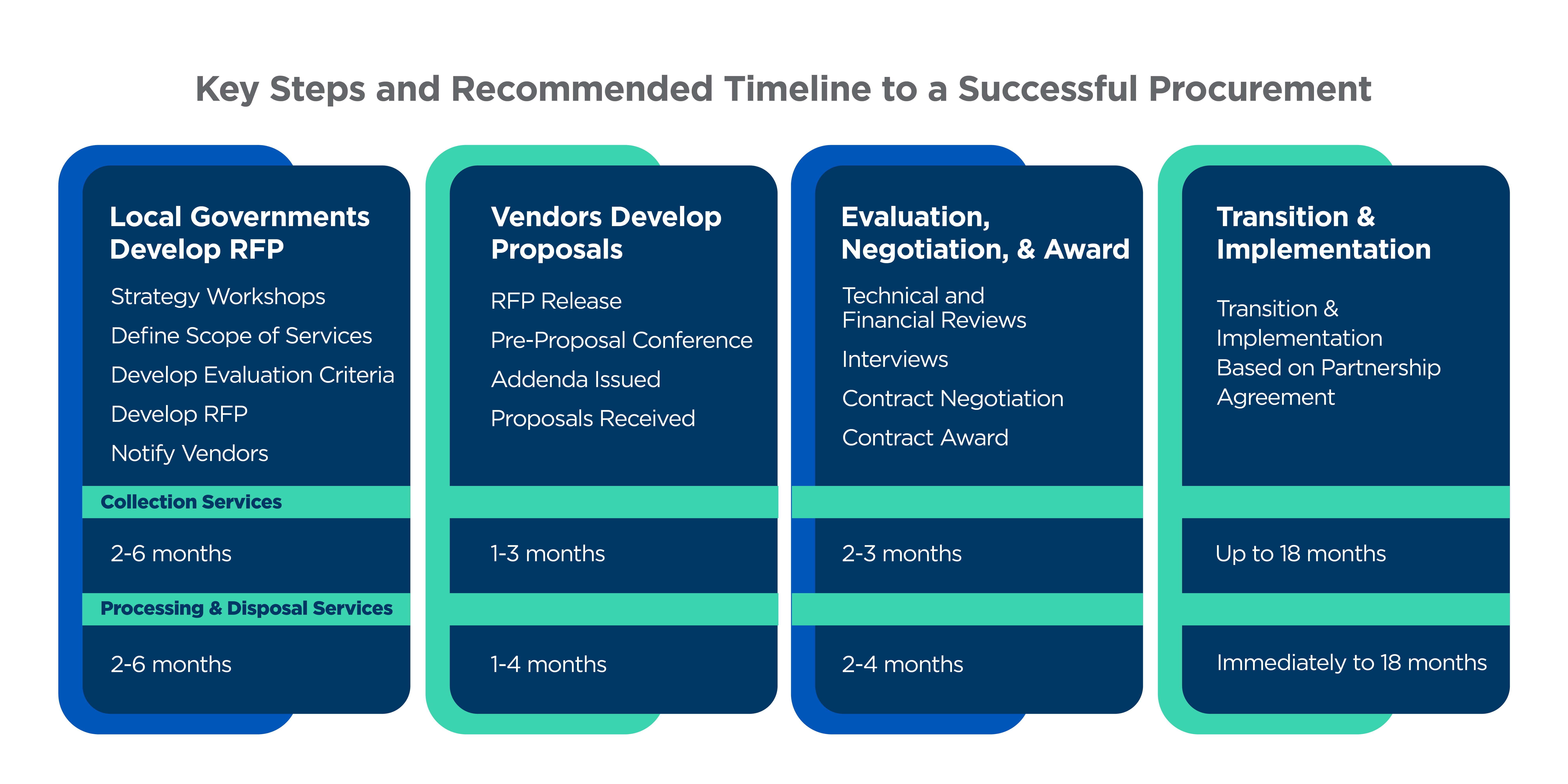Supply chain challenges affect all industries and nowhere is this more apparent than in the automotive and heavy equipment manufacturing space.
Steel and semiconductors are frequently the components most likely to have an impact on global vehicle production during supply chain disruptions, delaying the availability of vehicles and equipment for purchase. In some states, end users can wait six months to more than a year to purchase cars and trucks because vehicle assembly plants are unable to keep up with demand because they can’t get needed parts.
The trickle-down effect of supply chain issues impacts a variety of sectors including solid waste management, which relies heavily on vehicles, especially trucks that have a substantial amount of mechanical and electrical components. There are a multitude of reasons why planning early is imperative when considering a solid waste and recycling services partner. Vehicle shortages, volatile fuel pricing, an uncertain economy, and the higher cost of trucks and other equipment can all play a role. Other factors to consider include the increase in solid waste volume, facility owners charging more for landfill disposal and recycling services, and CDL operators driving up labor costs.
Supply chain concerns can cause a major ripple effect for municipalities, states and regional entities that manage recycling and solid waste collection, recycling processing, and disposal services. These entities often hire outside contractors to handle solid waste and recyclables, and whenever there is a shortage of trucks available, these entities will feel the pinch.
It is costly to manage solid waste and recycling systems, especially during times of high inflation, although costs and services differ based on region and municipality. Long before the first load of solid waste is collected and taken to a landfill or recycling is transported to a material recovery facility, solid waste management planning must take place. Thoughtful strategic planning is essential for the success and financial performance of a solid waste management program and a livable city.
Proper planning is the key to keeping solid waste management manageable and given ever-evolving circumstances, choosing the most efficient contracting strategy is more crucial than ever. A balanced approach to procure any combination of solid waste and recycling services is recommended.
Start the contract process early. Procurement timelines vary based on type of services and other factors. A good vendor contract should be clear, comprehensive, performance-based and protective of public interests. Beginning the process two to three years before solid waste management or recycling services are needed allows adequate time for the procurement process and enables the selected contractor to purchase equipment, design routes and conduct other activities that enable smooth implementation. Previously, the procurement process for collection services required a 12-month schedule. It’s longer due to the time needed to purchase vehicles. Allow two to six months for process preparation and to develop RFPs. Add another three to six months for vendors to submit proposals and to allow time for evaluating proposals and negotiating contracts. Then, add up to 18 months for implementation, which includes procuring vehicles, purchasing other equipment and building facilities.
Do diligent financial planning that takes into account rising costs during the contract cycle. Systems that are integrated, efficient and sustainable must be put in place to operate solid waste and recycling systems. Operational and capital costs need to be a prime consideration when planning. Municipalities must determine how to navigate inflationary cost increases for services and then put mechanisms in place to allow for future cost adjustments (which can go up or down). During times of inflation, building in proper adjustment mechanisms is important. See that the length of the contract is appropriate (ideally matching equipment and/or facility life cycles to allow full deprecation), build in program flexibility and contingencies, and be mindful of statutory and environmental requirements.
Pay for only what is necessary and be aware of vendors’ special fees and hidden costs. Remember to consider the implications of best value versus low price. While cost should be an important component to the evaluation criteria, selecting solid waste and recycling service providers should involve a much wider range of evaluation criteria. Evaluate companies based on a variety of metrics including price, method of approach, experience, references and financial stability. Further, including a draft contract as a part of the RFP is highly recommended and local governments should require vendors to identify any requested exceptions to the agreement as a part of the proposal. Taking this approach provides local governments with a clear picture of a vendor’s financial submittal and should clearly delineate what costs and future adjustments will or won’t be allowed.
Measure program effectiveness and apply key learnings to the future. An effective solid waste management strategy is extremely valuable when navigating supply chain challenges that affect the basics like vehicle availability. Continually monitoring what you are doing and making sure it is meeting the needs of residents can result in greater uninterrupted service to communities. Consider using new technologies and industry-leading tools for tracking progress and monitoring contractor performance. For example, at Burns & McDonnell we have developed industry-leading contractual language that allows local governments to track missed collections on a real-time basis using commercially available routing technologies. We then tie this technology to contractual requirements for the service provider.
Thorough solid waste management planning helps municipalities identify and prioritize needs during challenging times. Our team can deliver solid waste management and recycling projects that meet your requirements.

